Sánchez Wants Spanish Companies to Build Infrastructure in Croatia
ZAGREB, 7 Oct 2021 - Spanish Prime Minister Pedro Sánchez used his visit to Zagreb on Wednesday to open the door to Spanish companies which want jobs in Croatia to modernize railways and other infrastructure co-financed with EU money.
"European funds represent a big opportunity for Spanish companies, world leaders in sectors such as transport, renewables, and food, to share their experience with Croatian companies," he said after meeting with Prime Minister Andrej Plenković, Parliament Speaker Gordan Jandroković, and President Zoran Milanović.
In February, the Spanish company COMSA landed a €35.7 million contract to build waterworks in Metković, one of the biggest infrastructure projects in that southern Croatian town to date. COMSA is also modernizing a railway from Vinkovci to Vukovar in east Croatia.
Brussels is pushing for the construction of a 7,000-kilometre railway from Spain via France, Italy, Slovenia, Croatia, and Hungary to the Ukrainian border. Known as the Mediterranean Corridor, this route could be completed in 2030. It would reduce transport costs and the pollution created by road transport.
Croatia joined the project in 2016 and sees it as an opportunity to modernize its railway from Rijeka via Zagreb to Budapest, with a branch line from Zagreb to Ljubljana. Croatia has requested the extension of its section across the Lika region towards the Dalmatia region and the southernmost seaport of Ploče.
As part of its cohesion policy to reduce differences between poor and rich parts of the EU, the European Commission made €10.7 billion available to Croatia in the 2014-20 period, but Croatia contracted projects worth more than that, so they should enter the 2021-27 EU budget. In the months ahead, Croatia will propose other projects for financing.
Spain's COMSA and other foreign companies will apply to tenders in Croatia, 85% of which will be co-financed by the EU. Since joining the EU in 1986, Spain has modernized its railways and roads with EU money.
The Spanish government, therefore, supports Croatia's accession to the Schengen and euro areas.
"Croatia and Spain share many common interests in the EU," Sánchez said at a press conference in Zagreb.
In 2019, Spain sold €840 million worth of goods and services to Croatia, while importing €266 million worth of goods, according to Croatian Chamber of Commerce data. After that record-high, the coronavirus halted trade.
Although Spanish companies are behind German and Italian ones as to their presence in Croatia, they are trying to expand operations. The Ale-Hop gift shop chain last week opened a store in Zadar, which is its first shop outside Spain and Portugal.
Spain supports EU enlargement to Albania, Montenegro, North Macedonia, Bosnia and Herzegovina, Serbia, and Kosovo to expand its market.
"Since coming to the helm of the government, I have always pushed for a bigger presence of my country in this region, confident that we share many things," said the Socialist Sánchez, in power since summer 2018.
At an EU-Western Balkans summit in Slovenia on Wednesday, the EU did not say when those Western Balkan countries might join the bloc.
Croatia, which joined in 2013, invited Sánchez to visit last month, but he canceled due to a reshuffle in his coalition government.
In recent years, Spain has intensified its officials' visits to Croatia. In 2019, the then foreign minister Josep Borrell visited Zagreb, which was the first visit by a Spanish minister in 14 years.
Every year 10% more Spanish tourists had been visiting Croatia. In 2019, there were 315,000 arrivals, but after the pandemic outbreak in spring 2020, arrivals dropped to 27,000, according to Croatian Tourist Board figures for last year.
For more about politics in Croatia, follow TCN's dedicated page
Plenković, Sánchez Announce Stronger Croatian-Spanish Cooperation
ZAGREB, 6 Oct 2021 - Croatia and Spain cooperate well in many areas, with €1 billion in trade, but the COVID-19 crisis has disrupted that process, so Prime Ministers Andrej Plenković and Pedro Sánchez said on Wednesday they would work on intensifying cooperation.
"Croatian-Spanish trade is about €1 billion. We believe that's good. However, we've had certain oscillations during the COVID crisis. Today we talked about how to advance cooperation, how to make our private sectors cooperate as well as possible, notably by utilizing funds from the NextGenerationEU instrument," Plenković told the press after meeting with his Spanish counterpart.
Sánchez, the first Spanish prime minister visiting Croatia, said the two countries were trying to advance their relations, the development of which was stopped by the pandemic last year, stressing that EU funds could help them revive their economies.
"A few weeks ago, Croatia joined the cooperation within MED9, nine European Union members states on the Mediterranean, and this forum will serve as a dialogue for Mediterranean countries to advance cooperation in many areas, notably all those key global issues we are faced with, from the fight against illegal migration to climate change, which are especially important for all Mediterranean countries, as well as in many other security and development topics that are important both for north Africa and the eastern Mediterranean," said Plenković.
He also said that Croatia and Spain could exchange experiences in tourism, "this important industry", and see how, "after this brilliant season that we had", to prepare for the next one as well as possible.
"Croatia is very active in the World Tourism Organization, which is based in Madrid. We are looking forward to cooperation in that area," Plenković said.
He noted that cooperation in defense and security as well as many operations, notably in the Mediterranean, was also important for the two countries, adding that next year Spain will host a NATO summit.
The two prime ministers also mentioned cooperation on the DONES (DEMO-Oriented Neutron Source) project which, they said, is very important for the future of energy and for reducing greenhouse gases.
"That's a Croatian-Spanish partnership in nuclear fusion in which the Ruđer Bošković Institute is participating. It's an important, strategic project financed with European funds so that we can have inexhaustible and clean energy sources," said Plenković.
Sánchez too welcomed the experimental program for preserving the environment.
Following a summit with Western Balkan countries in Slovenia over the past two days, the two prime ministers also talked about the situation in Southeast Europe and EU enlargement.
Plenković said Sanchez was exceptionally familiar with the situation in Bosnia and Herzegovina and the other countries in the region.
"We took this opportunity to talk about how to make it possible for enlargement to go on, how to have, first of all, a stable BiH. For us it's especially important to ensure, through changes to the electoral law, the legitimate representation of Croats as the smallest constituent people in BiH's highest bodies," Plenković said.
According to the Spanish premier, the Western Balkans "should be given the place to which it belongs". He again called for EU enlargement.
Sánchez also invited Plenković to visit Madrid.
For more about politics in Croatia, follow TCN's dedicated page.
Ruđer Bošković Institute Plasmonic Effect Research Shows Promise
September 10, 2021 -The Ruđer Bošković Institute plasmonic effect research described the property of nanoisland metal films of silver and copper which can be seen in various applications, particularly in green technology development.
Metal nanoparticles are submicron scale entities made of pure metals (e.g., gold, platinum, silver, titanium, zinc, cerium, iron, and thallium) or their compounds (e.g., oxides, hydroxides, sulfides, phosphates, fluorides, and chlorides), as explained by the Science Direct website.
When it comes to modern science, a particular interest in metals has now shifted to the Plasmonic effect. This effect is an interaction between free electrons in metal nanoparticles and incident light, as briefly explained by the National Institute of Technology Calicut physics department researcher Shamjid Palappra.
With this question raising curiosity among scientists worldwide, it was impossible for the Ruđer Bošković Institute (IRB) in Zagreb and their optics laboratory to not dive into the subject themselves.
As IRB reported, Matej Bubaš, Vesna Janicki, Stefano A. Mezzasalma, Maria Chiara Spadaro, Jordi Arbiol, and Jordi Sancho-Parramon authored a research titled ''Tailoring plasmonic resonances in Cu-Ag metal islands films'' which was then published in a respected Applied Surface Science journal.
IRB's optics lab collaborated on this research with colleagues from the Lund Institute of Advanced Neutron and X-ray Science (LINXS) in Sweden, and two institutions from Catalonia in Spain, the Catalan Institute of Nanoscience and Nanotechnology and ICREA.
''The plasmonic response of Cu-Ag metal islands films is being investigated. Films are obtained by the subsequent electron beam deposition of Ag and Cu using different fabrication conditions: the deposited mass thickness, then comes the substrate temperature, and then the post-deposition annealing in the vacuum. The optical properties of the films are investigated by spectroscopic ellipsometry and then correlated with the structural characterisation results obtained by electron microscopy,'' explained the abstract of the research concerning the metal island combination of silver (Ag) and copper (Cu).
''Overall, it has been shown that Cu-Ag island films are compelling systems for plasmonic applications, as their optical response can be widely and easily tuned by adjusting the fabrication conditions,'' the abstract summarised.
IRB's press release clarified the research goals, stating that the scientists described how plasmonic properties could be adjusted for the preferred types of radiation, be it infrared, visible light, or ultraviolet radiation. These descriptions and setup possibilities of nanoisland plasmonic properties bring with them a plethora of applications.
''Devices that use plasmonic effects already upgraded their diagnostics and spectroscopy, while research in the direction of upgrading the conversion of solar energy and manufacturing catalysts that would turn toxic compounds into useful ones carry great potential for the development of new green technologies,'' pointed out IRB's press release.
Developing green technologies and turning toxic compounds into useful ones is not a new thing for IRB, as TCN previously reported.
Learn more about Croatian inventions and discoveries from Tesla to Rimac on our dedicated TC page.
For more about science in Croatia, follow TCN's dedicated page.
Highlights of the Week: 5 Big Events in Croatia from June 28-July 4
June 3, 2021 - TCN's highlights of the week. A look at the events in Croatia from June 28 through the selection of TCN's reporter Ivor Kruljac.
EURO 2020 elimination and Dario Šarić in the NBA finals. Zagreb witnessing a series of arrests related to corruption of Milan Bandić's reign and explosive device planted in Split. In the midst of it all, is COVID-19 vaccination on its way to becoming obligatory and not optional? You may prefer the good news or the bad news, but here is both, as another week in Croatia comes to an end.
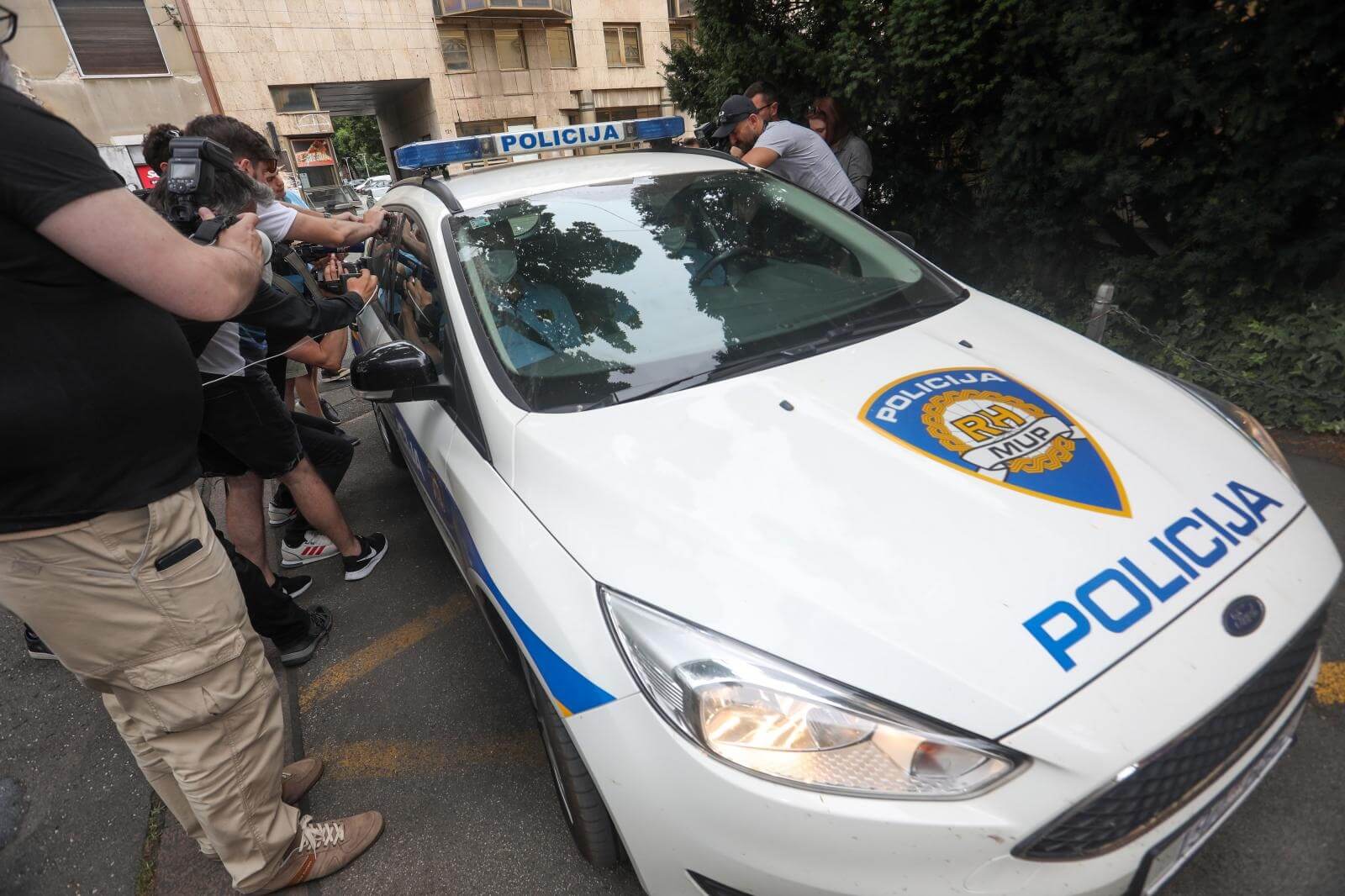
© Marin Tironi / PIXSELL
Highlights of the week: Uskok arresting Zagreb entrepreneurs and associates of former mayor Milan Bandić
The Office of Zagreb Mayor Tomislav Tomašević said on Wednesday that a preliminary investigation by members of the Office of the Chief State Prosecutor and the Office for Suppression of Corruption and Organised Crime (USKOK) started at the city administration offices at 6 am on Wednesday.
As TCN wrote, several people were arrested on suspicion of corruption, including the director-general of the HRT public broadcaster, Kazimir Bačić, Andrea Šulentić, and Ana Stavljenić-Rukavina. Both Šulentić and Rukavina were directors in Zagreb administration offices and close associates of former mayor Milan bandić. At the same time, details Bandić's heavy corruption (suspected and known publicly earlier) came to light.
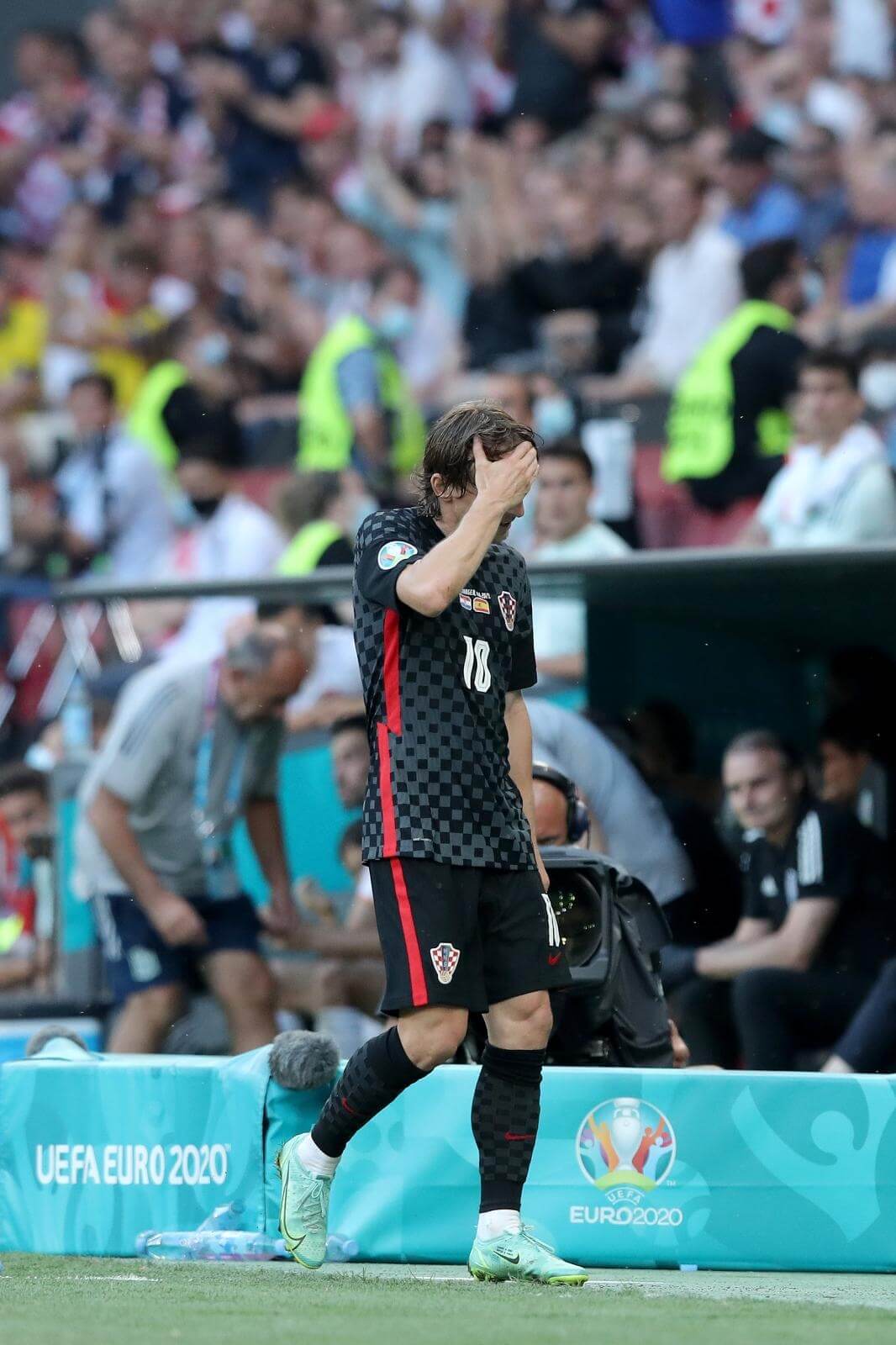
© Goran Stanzl / PIXSELL
Highlights of the week: Croatia eliminated from Euro 2020 after losing to Spain
Croatia and Spain met in Copenhagen on Monday for their EURO 2020 round of 16 match. It was a decent effort from Croatia, but not enough. Despite the Spain own goal in the 20th minute, the distraction as Rebić went to change his boots saw Spain even the score. The score towards the end of regular time went to 3:1 for Spain, but Croatia managed to lower to 3:2 and finally, in the added time, Pašalić scored for 3:3.
But, the euphoria was ruined for Croatia as in extra time, Morata earned Spain 4:3, and by 103rd minute, the total and final score was 5:3 for Spain. It was one of the more intense games on Euro so far as both teams show incredible spirit and persistence.
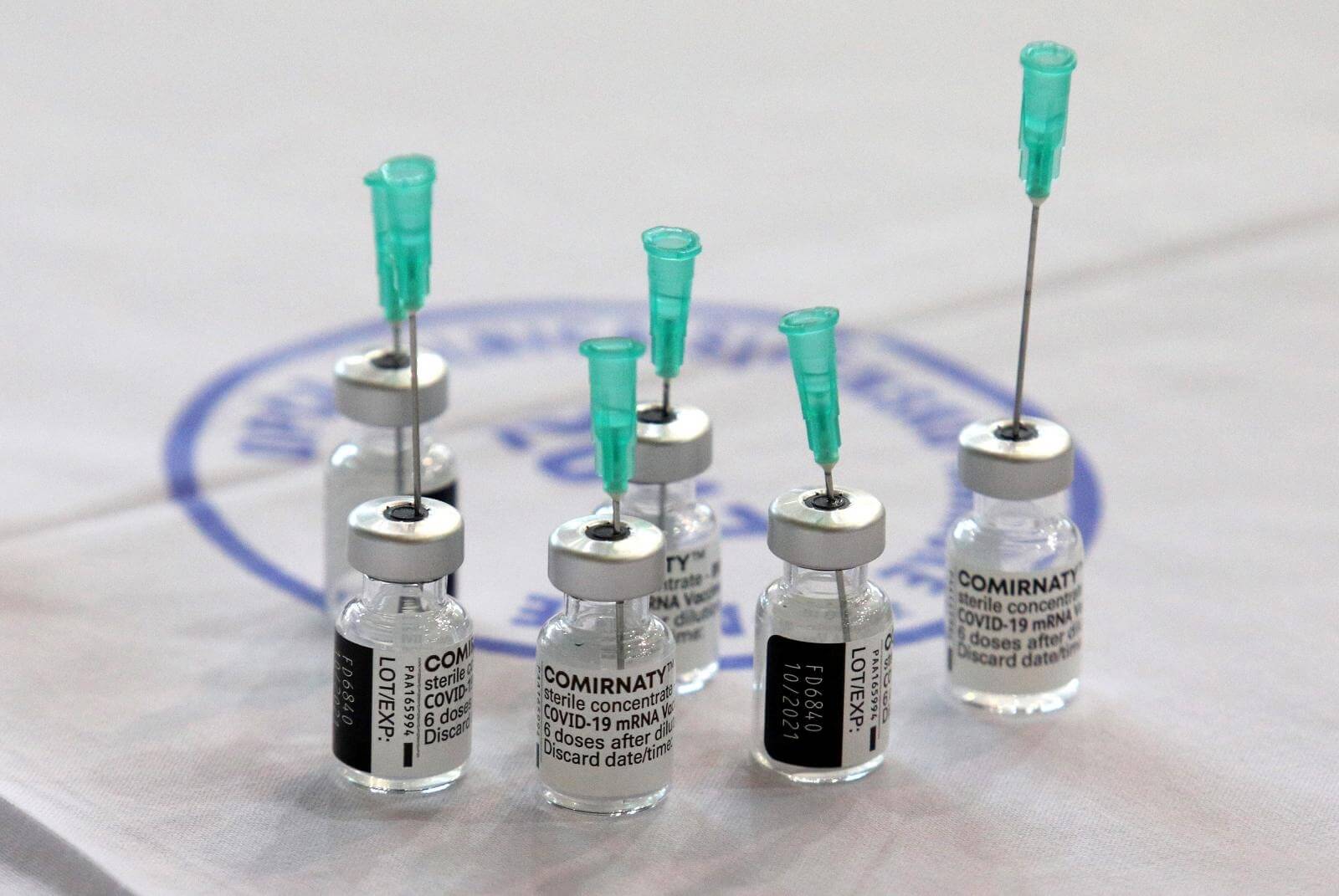
© Dusko Jaramaz / PIXSELL
Highlights of the week: Opposition parties against vaccination being required for job-keeping payments
The Social Democratic Party (SDP) called on Prime Minister Andrej Plenković on Thursday not to make vaccination a requirement for job-keeping payments, while the Most party said business owners were being blackmailed into vaccination.
As TCN reported, SDP leader Peđa Grbin elaborated his dissatisfaction via social networks.
"In Croatia, mandatory vaccination is possible, but the obligation is first established under the law on the protection of the population and then regulated and worked out under Immunisation Rules and the Mandatory Vaccination Programme. The obligation of vaccination can't be imposed in another way, notably not by linking support for entrepreneurs with vaccination," SDP president Grbin posted on Facebook.
"Most is against entrepreneurs, who are being forced into vaccination through blackmail, saving the government's mindless epidemic policy", stated the Most party on its official Twitter account. They added that Croatia was stuck with over 300,000 surplus vaccines because of poor government moves and communication omissions.
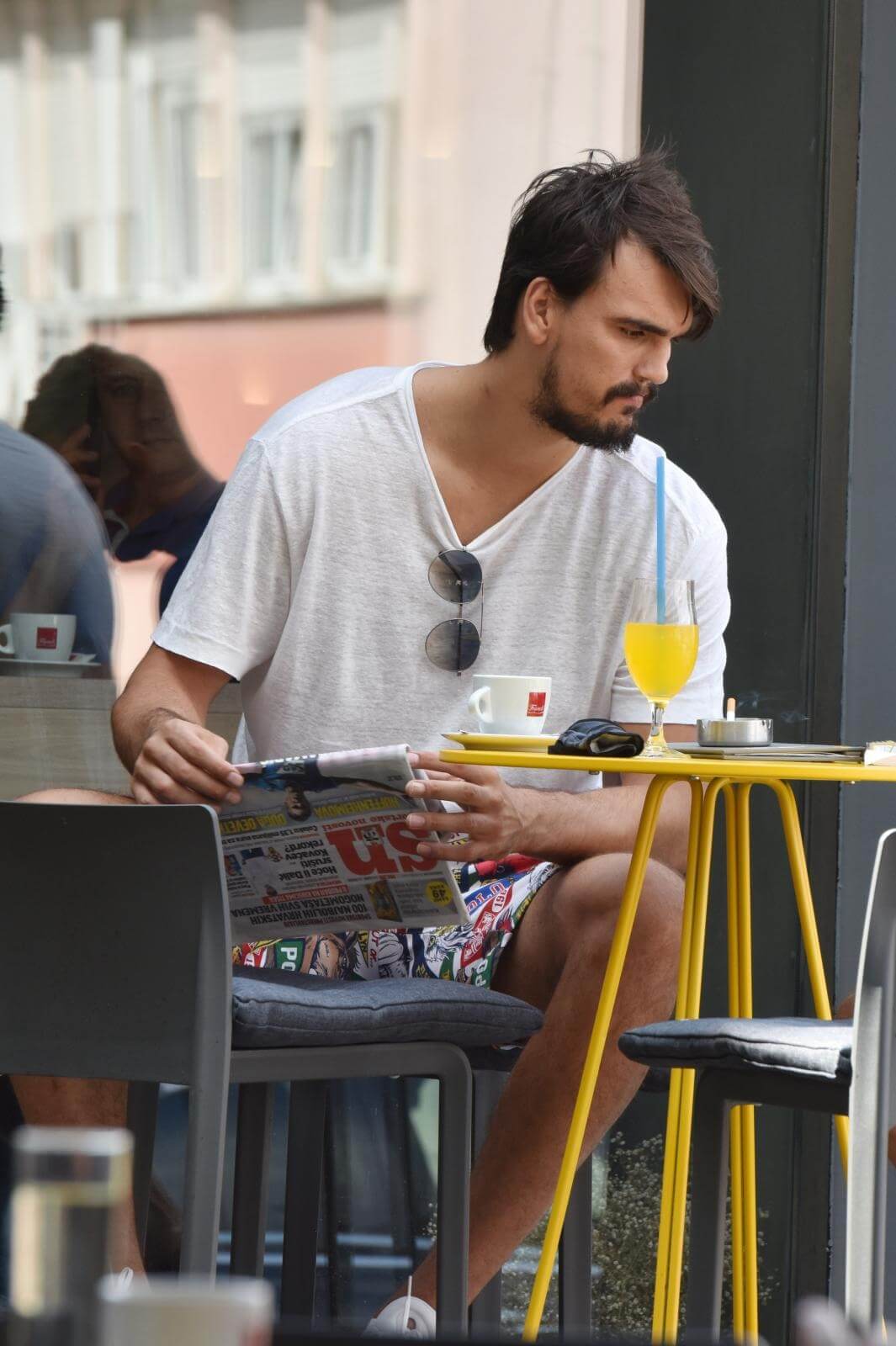
© Hrvoje Jelavic / PIXSELL
Highlights of the week: Dario Šarić becomes 5th Croatian basketballer in the NBA finals
Šibenik's Dario Šarić is the 5th Croatian basketball player to reach the NBA finals! As TCN wrote, Šarić became only the fifth Croatian basketball player in the NBA league finals, joining the company of Dražen Petrović, Toni Kukoč, Žan Tabak, and Ante Žižić. Šarić plays for Phoenix Suns. They topped the Los Angeles Clippers 4-2 in the NBA Western Conference Finals. Apart from basketball, Šarić also likes to enjoy sipping coffee on Šibenik cafe terraces, as portrayed in the photo.
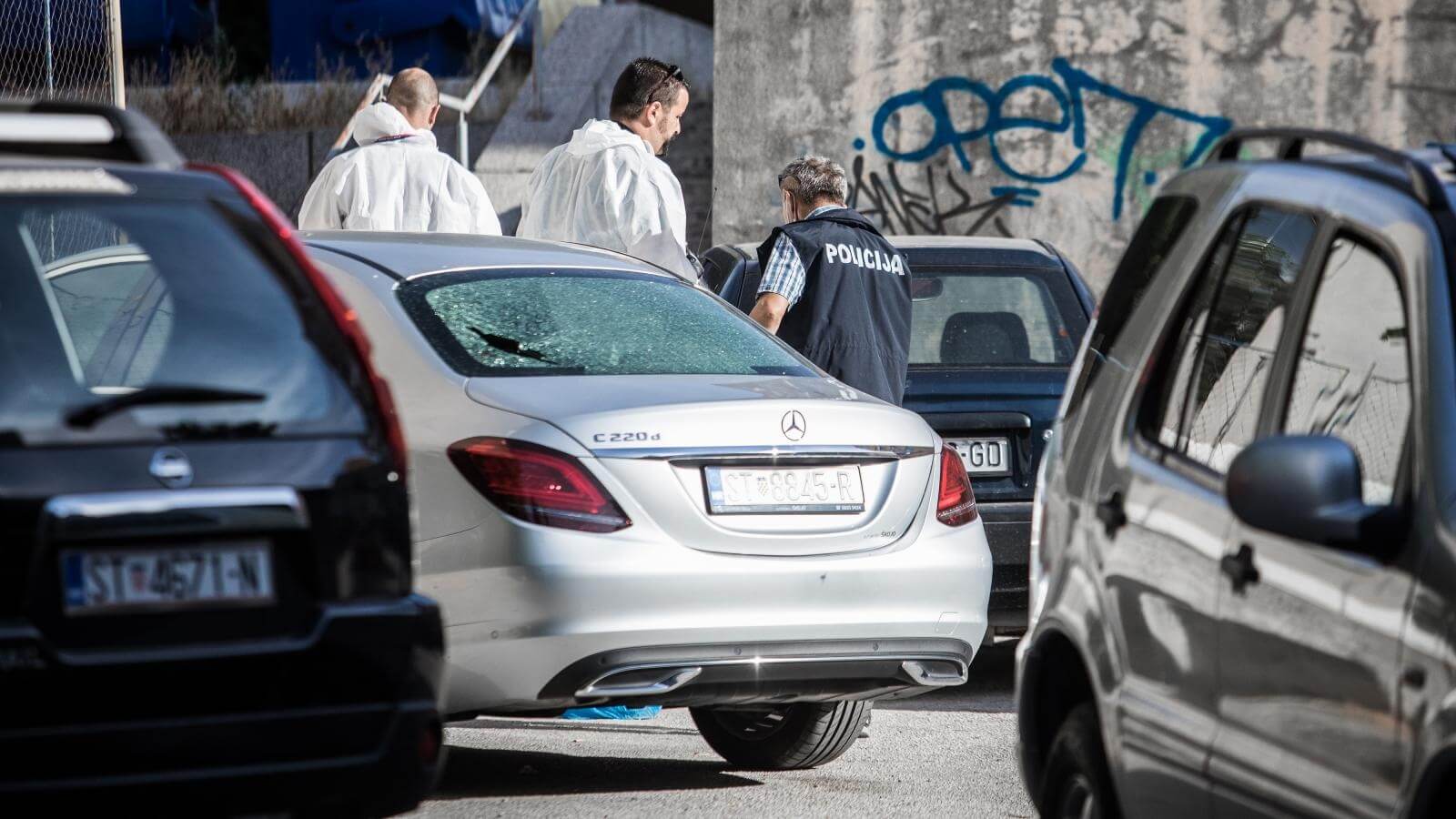
© Milan Sabic / PIXSELL
Highlights of the week: Bomb planted in Split. One person injured
In the night from Thursday to Friday, an unknown person placed an explosive device underneath a vehicle. The explosion damaged six cars, and one person required medical attention. The investigation is ongoing since Friday morning.
To learn more about Croatia, have a look at our TC website.
For more about news in Croatia, follow TCN's dedicated page.
Parl. Parties Endorse Ratification of Classified Information Agreement With Spain
ZAGREB, 12 March, 2021 - Croatian parliamentary parties on Friday endorsed the proposal to ratify the Agreement on Mutual Protection of Classified Information between the governments of Croatia and Spain.
During the discussion, Zvonimir Troskot (Bridge) noted that Croatia and Spain had had good bilateral relations since the 1990s, sharing the same principles and goals.
"Both countries are facing the same challenges - migration, the fight against terrorism, climate change, Spanish companies are already present on our market, so why are we ratifying this agreement only now?" Troskot asked.
Juro Martinović, State Secretary at the Ministry of Justice and Administration, said that "there is nothing spectacularly new" in the Agreement. "States always regulate such matters. Under international law, Croatia is a successor to many agreements concluded by (former Yugoslavia)," he added.
Martinović said that the Agreement had been signed on 15 December 2020 and that it established a legal framework for the protection of classified information that is generated or exchanged between the parties, and designated competent authorities for the implementation of the Agreement. The Agreement also determines equivalent classification levels, national measures to protect classified information and mechanisms for transmission of such information.
Independent MP Marijana Petir asked Martinović if Croatia had similar agreements with other EU countries and whether there had been any violations of those agreements, to which he said that he had no knowledge of any violations.
Ivan Budalić of the ruling Croatian Democratic Union (HDZ) said that Croatia had similar agreements with many countries, including Austria, Bulgaria, the Czech Republic, France, Hungary, Sweden and Italy.
Dalija Orešković (Centre party) was interested to know who had decided on concluding the Agreement, who had appointed the delegation and whether the President of the Republic was involved in the process, to which Martinović said that the Agreement enters into force after it is signed by the President of the Republic and published in the Official Gazette and the two governments exchange notes.
For more about politics in Croatia, follow TCN's dedicated page.
Pula Aquarium and Valencia Institute Cooperate for Noble Pen Shells
February the 18th, 2021 - The noble pen shell, about which much has been written over recent years as they become more and more rare to come across, has seen an institute in Valencia and the Pula Aquarium, known for rescuing marine animals, team up to protect them.
As Morski writes, the Pula Aquarium has recently announced that in the future it will cooperate with the Institute of Environment and Marine Science of the University of Valencia (Instituto de Investigacion en Medioambiente y Ciencia Marina Universidad Catolica de Valencia San Vicente Martir (IMEDMAR-UCV)), ie, with dr.sc. Jose Tenom and Ph.D. Jose Rafael Garcia-March on the preservation of the beautiful and ever illusive noble pen shell (Pinna nobilis) in strictly controlled conditions (ex situ).
The mass mortality of these strictly protected and endangered noble pen shells began over in Spain back in 2016, and this sad situation has unfortunately also been witnessed here in Croatia, with some people even removing them from the sea to take photos with them, an act that is illegal and as such punishable.
The Spanish authorities reacted quickly to the issue they noted back in 2016 and an expert and scientific community was organised to preserve the shells. In addition, back during the middle of 2019, the Pula Aquarium, entirely on its own initiative, will start working on the conservation of the last specimens of this protected shell (with the permission of the competent Ministry), once again in ex situ conditions.
The cooperation between IMEDMAR-UCV and the Pula Aquarium is important for keeping the noble pen shell alive. As stated, the Pula Aquarium is no stranger to taking care of life in the Croatian Adriatic, rescuing and rehabilitating many a loggerhead turtle. Accordingly, it will contribute in this project with diligent work and the continuous improvement of techniques and methods, while IMEDMAR-UCV has all of the specific knowledge and experience in the field of larval and juvenile noble pen shell care.
For the latest travel info, bookmark our main travel info article, which is updated daily.
Read the Croatian Travel Update in your language - now available in 24 languages.
Croatia's Honorary Consul in Barcelona Under Investigation for Money Laundering
ZAGREB, February 22, 2020 - Catalan police are investigating Croatia's honorary consul in Barcelona over possible money laundering for a local criminal gang, a source from Catalonia's autonomous police told Hina on Friday.
Consul Juli Barcena San Jose is suspected of receiving money from drug sales and investing it in real estate and luxury cars, thus covering up the trail of the illegally gains.
Also under investigation are the honorary consuls of Albania and Mali, Jose Maria Calmet Iglesias and Jose Luis Lopez Fernandez, respectively. Both are suspected of the same crime.
Catalonia's autonomous police Mossos d’Esquadra said on 18 September 2019 that they had arrested four members of a known family clan from Catalonia for money laundering and drug trafficking. An investigation uncovered their business ties to the consuls.
Three honorary consuls stationed in Barcelona are under investigation, the Catalan police said in a press release.
A police source told Hina today Croatia's consul was under investigation while a diplomat said Croatia would request his dismissal for damaging Croatia's reputation.
Neither Barcena San Jose nor the Croatian consulate in Barcelona have issued any statement.
Honorary consuls are usually not nationals of the state they represent but citizens of the territory they are on, in this case Catalonia, i.e. Spain. They are usually renowned in their communities and their main job is to encourage economic and cultural cooperation between the two countries and to help the citizens of the country they represent.
Barcena San Jose is an entrepreneur and has held the post of Croatia's honorary consul since May 2002.
More news about relations between Croatia and Spain can be found in the Politics section.
Tourist Trade Between Croatia and Spain to Be Improved
ZAGREB, January 22, 2020 - Croatia is a popular travel destination in Spain, and tourist trade might rise with the opening of the Croatian National Tourism Board (HTZ) office in Madrid this year and with the introduction of new air routes, Croatian Minister of Tourism Gari Cappelli said on Tuesday.
During his official visit to Spain, Cappelli met his Spanish counterpart Maria Reyes Maroto Illera. The meeting at the Ministry of Industry, Trade and Tourism in Madrid was also attended by Croatia's Ambassador to Spain, Nives Malenica, the Croatian Ministry of Tourism said in a statement.
On that occasion, Capelli presented Croatia's European Commission Presidency priorities in the tourism sector, including advocating policies for responsible and sustainable development with emphasis on encouraging diversification of tourism supply and development of areas with underdeveloped tourism.
He emphasised the importance of using information and communication technologies, the digitisation of the tourism system, and of establishing a common EU regulation for digital platforms providing tourist services.
In addition, he presented Croatia's initiative for establishing an EU tourism brand for the joint promotion of member states on distant markets, inviting Spain to join the initiative and support a more favourable positioning of tourism within EU policies and institutions. Cappelli emphasised the importance of cooperation in absorbing EU funds for developing small and medium-sized tourism enterprises.
It was also pointed out that Croatia is a popular tourist destination in Spain, as confirmed by figures: in 2019, compared with 2018, there was an 8.4% increase in the number of tourists from Spain and a 10.4% increase in overnight stays made by Spanish tourists.
"I believe that the tourist exchange will grow further with this year's reopening of the Croatian National Tourism Board office in Madrid. The office will be located within the Croatian Embassy, in order to cut costs. A very important factor in establishing an even stronger connection between the two countries is the direct flight connection, which is improving from year to year, and at this moment, during the winter timetable, there are three airlines flying three air routes between Croatia and Spain," said Cappelli, who expects a regular daily flight service between Zagreb and Madrid to be established in the future.
More news about relations between Croatia and Spain can be found in the Politics section.
Plenković: Catalonia Not Topic of Croatia's EU Presidency
ZAGREB, January 16, 2020 - Croatian Prime Minister Andrej Plenković has told the former President of the Government of Catalonia, Carles Puidgemont, that the issue of Catalonia's status should not be dealt with by the EU heads of state and that it should be resolved in Spain, the Spanish news agencies EFE and Europa Press have reported.
Puidgemont addressed the European Parliament in Strasbourg on Tuesday, calling on the Council of the EU, which is currently chaired by Croatia, to support dialogue between Catalonia and Spain.
"During the discussion it was mentioned that we, as the presidency, had requested dialogue. That issue was not considered, particularly not at the level of the Council nor is it part of the activities of our presidency. That is a matter that needs to be resolved in Spain," Plenković said while answering a question at a news conference.
The Council of the European Union is an EU institution where ministers from the 28 member-states coordinate policies.
In his address at the European Parliament, Puidgemont said that Catalonia was a European internal issue that would be present during Croatia's six-month presidency, which was why it was necessary to find a political solution through dialogue and negotiations.
Puidgemont was indicted in Spain for incitement to rebellion after he organised a referendum in 2017on the independence of Catalonia, an autonomous region with a population of 7.5 million. The Constitutional Court had banned the referendum. A Supreme Court judge on Friday asked the European Parliament to strip Puidgemont of immunity so that he could be extradited to Spain.
A former vice-president in Puidgemont's government, Orio Junqueras, was sentenced in October 2019 to 13 years in prison for his role in the failed attempt at gaining independence for Catalonia.
In May 2019 Puidgemont and a former member of his government in charge of healthcare, Toni Comin, were elected to the European Parliament, which first withheld their accreditation but in December 2019 accredited them in line with a ruling by the Court of Justice of the EU in Luxembourg. This week they took part in the European Parliament's session for the first time.
More news about relations between Croatia and Spain can be found in the Politics section.
Spain: Croatia Will Work on Strengthening EU
ZAGREB, January 3, 2020 - The centre-left government in Spain on Thursday wished Croatia good luck during its six-month presidency of the European Union, noting that in that period work will be done to strengthen the EU.
Spain and the Ministry of Foreign Affairs "wish good luck to Croatia, which for the first time ever holds the presidency of the EUCouncil in 2020. The work of the EU2020HR will be guided by the slogan ‘A strong Europe in a world of challenges’," the ministry tweeted.
On Wednesday, Croatia assumed the presidency of the bloc of 28 countries for the first time since accessing the European Union in 2013.
Spain's Secretary of State for the European Union, Marco Aguirirano, met in Madridon 17 December with Croatian state secretary Andreja Metelko-Zgombić and the two officials discussed topics related to the EU. The meeting was when Metelko-Zgombić attended the Asia-Europe summit.
The two state secretaries announced the establishment of firmer relations in politics and culture between their two countries.
More news about relations between Croatia and Spain can be found in the Politics section.


